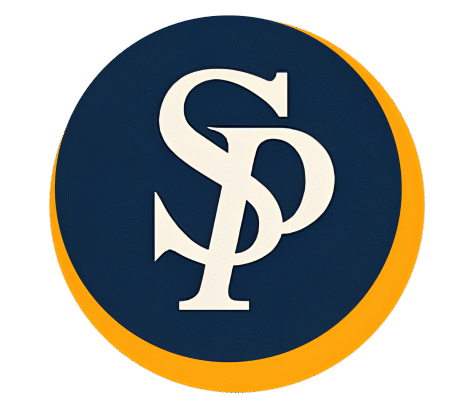Introduction
Artificial Intelligence (AI) is no longer just a buzzword—it has become a powerful force that is transforming industries, reshaping the workforce, and enhancing our daily lives. From voice assistants like Alexa and Siri to self-driving cars, AI-driven healthcare, and smart cities, artificial intelligence is deeply integrated into society.
By 2030, experts predict the AI market will surpass $1.8 trillion, driving innovation and disruption across every sector. But what does this mean for ordinary people? Will AI make life easier, or should we worry about risks like job displacement and data privacy?
This article explores the future of AI, detailing its impact on daily life, jobs, healthcare, and ethical challenges, while also highlighting the opportunities it brings for humanity.
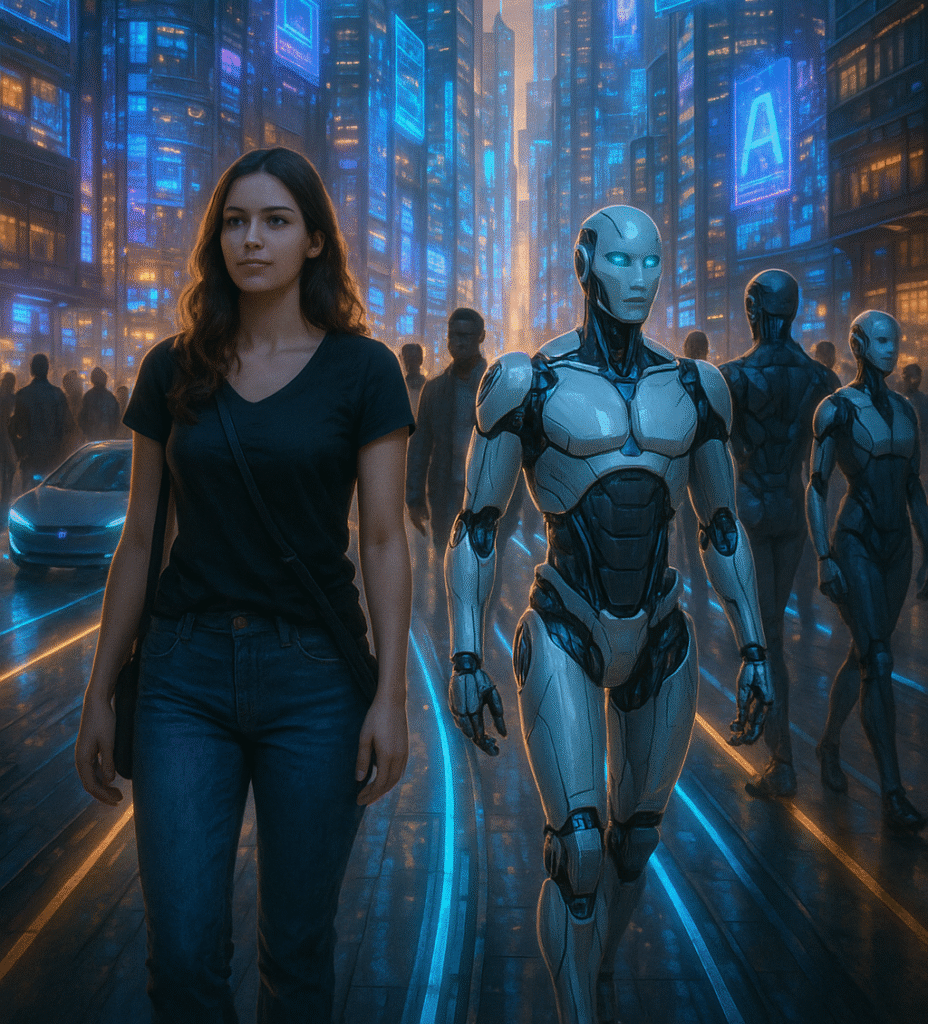
1. AI in Daily Life – The Rise of Intelligent Living
Artificial Intelligence will soon become as seamless and natural as electricity or the internet, shaping homes, entertainment, and lifestyle in ways we can barely imagine.
Smart Homes
AI-powered smart homes will anticipate your needs and optimize daily routines:
- Lights that adjust automatically based on your mood.
- Air conditioning that sets itself to your preferred comfort level.
- Fridges that remind you when supplies are low.
- AI assistants like Google Home and Alexa managing groceries, bills, and schedules.
This level of predictive automation will not only make life convenient but also improve energy efficiency and sustainability.
Personalized Lifestyle
AI will tailor every aspect of personal experiences:
Education – E-learning platforms adapting lessons to your pace and learning style.
Entertainment – Netflix and Spotify already recommend shows and music using AI.
Shopping – Personalized suggestions based on your style and behavior.
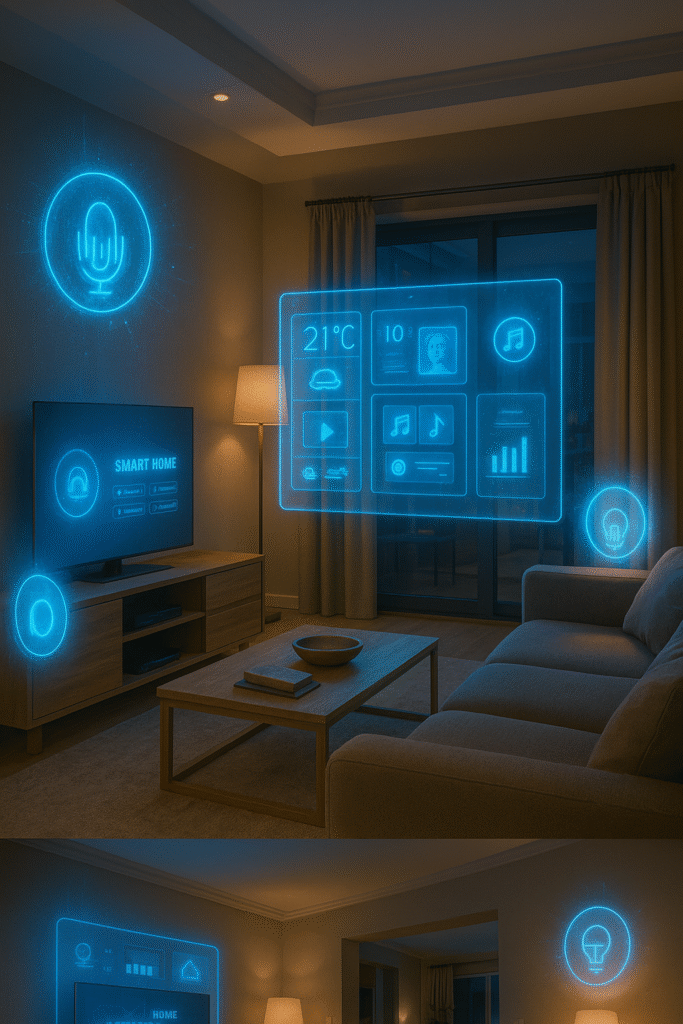
2. AI and the Future of Jobs – Will Robots Take Over?
AI is transforming the workplace, sparking debates about job losses versus job creation. The truth lies in both risks and opportunities.
Jobs at Risk
AI excels in repetitive and data-driven tasks, which puts some roles at risk:
- Data entry and clerical work
- Basic customer service
- Simple manufacturing and logistics
Jobs Created by AI
At the same time, AI will generate new industries and roles, such as:
- AI engineers, data scientists, and machine learning specialists
- Cybersecurity professionals
- AI ethicists, regulators, and trainers
Human + AI Collaboration
The future is not about replacement but collaboration. AI will handle repetitive tasks, leaving humans to focus on creativity, critical thinking, and emotional intelligence—skills machines can’t replicate.
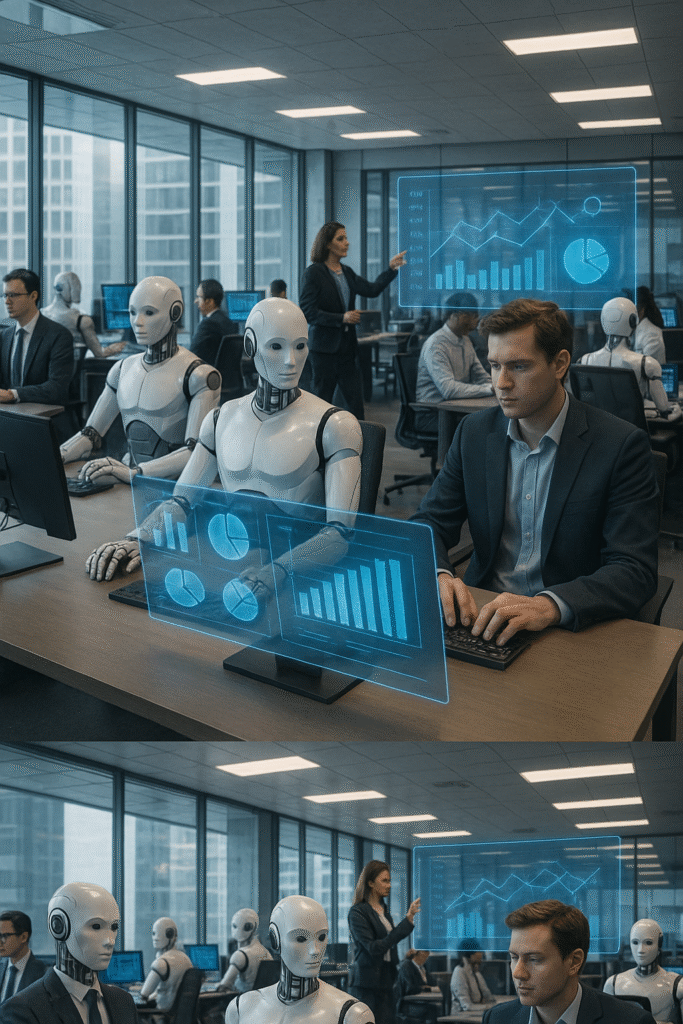
3. AI in Healthcare – Saving Lives with Technology
Healthcare is set to be one of the biggest beneficiaries of artificial intelligence.
Faster, Smarter Diagnosis
AI can analyze thousands of medical scans in seconds, detecting early signs of cancer, heart disease, or other conditions that humans might miss.
Personalized Medicine
By using genetic data, AI can design custom treatment plans, replacing one-size-fits-all medicine with precision healthcare.
Virtual Healthcare Assistants
AI-powered chatbots and virtual assistants will:
- Answer health questions 24/7
- Monitor patient symptoms
- Schedule medical appointments
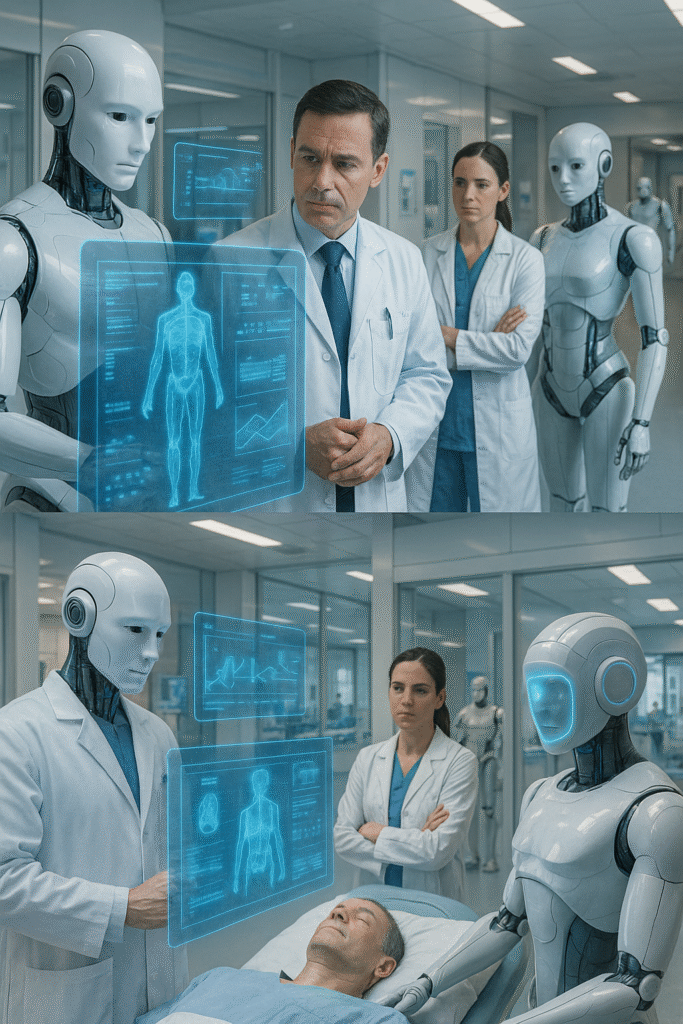
4. Risks and Ethical Challenges of AI
With innovation comes responsibility. AI poses risks that must be addressed to ensure fair and ethical usage.
Privacy Concerns
AI thrives on data, raising concerns about who controls personal information. Without strong regulations, privacy could vanish.
Bias in Algorithms
If trained on biased data, AI systems may reinforce discrimination—impacting hiring, lending, and policing.
Job Displacement
Automation may leave millions jobless unless governments and businesses invest in reskilling and education programs.
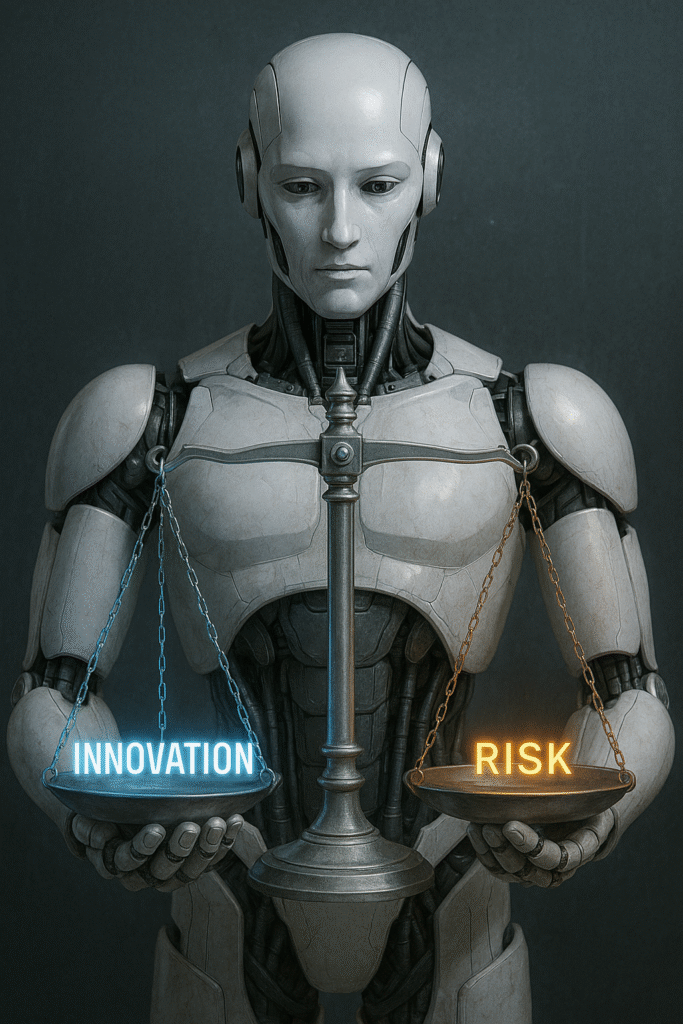
Conclusion – A Future with AI
The future of artificial intelligence is not about replacing humanity—it’s about enhancing it. If developed responsibly, AI can:
- Make daily life more convenient and efficient.
- Save lives with advanced healthcare solutions.
- Create new industries and opportunities.
- Tackle global challenges like climate change and food shortages.
However, the path forward requires ethics, transparency, and inclusivity. The choices we make today will determine whether AI becomes our greatest ally—or our greatest threat.
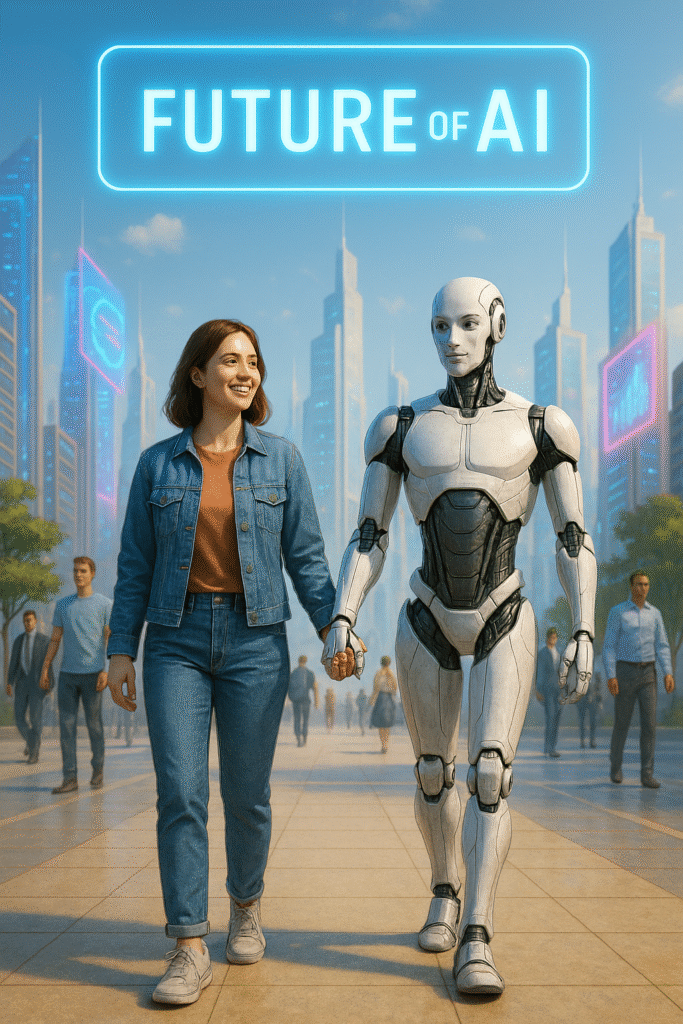
FAQs
1. How will AI change daily life?
AI will automate homes, entertainment, shopping, and learning, making life easier and highly personalized.
2. Will AI replace human jobs?
Some jobs will disappear, but AI will also create new industries. The key is reskilling and adaptation.
3. Can AI be dangerous?
Yes—if misused. Risks include privacy violations, biased algorithms, and job displacement. Responsible regulation is critical.
4. What industries will AI impact the most?
Healthcare, finance, education, transportation, and entertainment will undergo the most disruption.
5. How can I prepare for the AI future?
Learn digital skills, embrace lifelong learning, and focus on creativity, critical thinking, and emotional intelligence.
